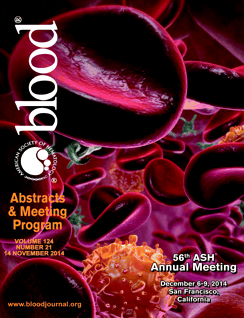Abstract

Endocrinopathies are well known complications of haematopoietic stem cell transplants (HSCT) and their onset may occur many years after the transplant process. Infertility in men is common and occurs soon after exposure to high doses of radiation/chemotherapy as a result of Sertoli cell damage. Despite this testosterone levels are usually normal. We have investigated testosterone levels in male patients surviving a minimum of 10 years following of HSCT to see whether there are long term effects of chemoradiotherapy on testosterone production.
We have investigated testosterone levels in 46 long-term survivors of allogeneic HSCT attending a dedicated late effects clinic over a 12 month period. Data were compared to age-matched non-transplant controls in a paired case-control analysis. The controls were being investigated for fatigue but had no specific underlying illness. Where testosterone levels were low, repeat measurements were taken with LH and SHBG.
The median age at HSCT was 30 years (range 12-53) and the median duration of follow up was 19 years (range 10-34). 44/46 received cyclophosphamide/TBI conditioning. 32 patients had CML, 5 had ALL, 7 had AML, 1 had aplastic anaemia and 1 had lymphoma.
26/46 (57%) patients had a low testosterone reading at some point compared to15% in the control group (p < 0.0001). Two of these patients had a low SHBG and a normal free androgen index. 16/46 patients had persistently low levels which for 8 was primary testosterone deficiency with elevated LH and for 8 was secondary with inappropriate low gonadotrophins. In four patients the testosterone fluctuated around the normal level and for four it was an isolated low reading. The transplanted patient group had a significantly lower mean testosterone level at 10.8 nmol/l (range 3.2-20.3) compared to 15.2 nmol/l (range 7.5-28.1) in the control group (p = 0.00009). The probability of developing true hypogonadism (defined as consistently low testosterone levels after repeat measurements) increased from 0.087 at 10 years to 0.554 after 25 years.
We have shown that true hypogonadism is a common finding between 10 and 25 years post transplant. Implications include reduced energy levels, decreased libido, decreased bone density and sexual dysfunction. Our data indicate that for male patients surviving 10 years or more after HSCT annual biochemical surveillance is required.
Apperley:Ariad: Research Funding; Bristol Myers Squibb: Research Funding; Novartis: Research Funding; Pfizer: Research Funding.
Author notes
Asterisk with author names denotes non-ASH members.

This icon denotes a clinically relevant abstract

